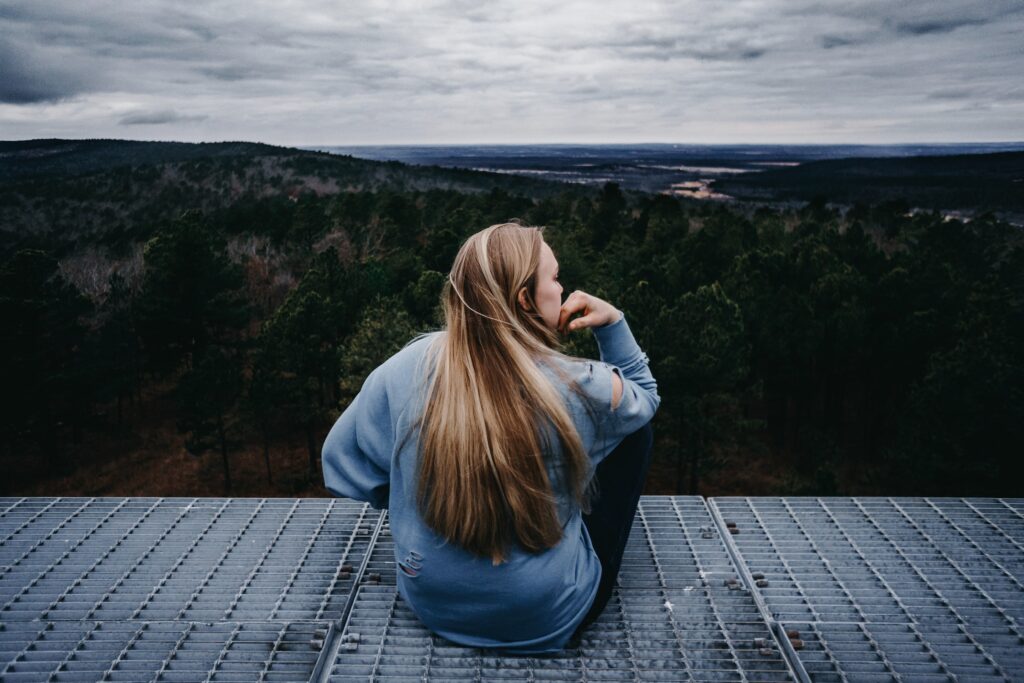
Recently, I’ve found myself in a state I’ve experienced many times before: Burnout. Specifically, I was experiencing burnout after a year of dealing with chronic stress, from the global pandemic to unrest in my country to wildfires in my state — all while trying to maintain my productivity and a semblance of a “normal” life. Still, I thought I could be doing more for others, even as I was struggling. Growing up, I was taught to always put others before myself. The Golden Rule was etched into my brain: Treat others as I want to be treated.
However, I missed a key piece of that statement — the second half. It took me many years to understand that giving to others didn’t have to mean depleting all of my energy.
Instead, as I grew up, I became a full-on people pleaser in every area of my life. If my boss needed someone to stay late, I was the first to volunteer. If my friend needed help, it wasn’t even a question. I never said no to… anything. I said yes to everyone until I’d reach a state of exhaustion.
It wasn’t until I’d gone through the cycle of burnout many, many times that I finally started to reevaluate my choices. I’d realize I had no free time because I’d overcommitted in every area of my life.
RELATED: Prioritize You: 4 Easy Ways to Practice Self-Love
The signs were usually the same: feeling more irritable, exhausted, tired, cranky, anxious, and like I was running on empty. Why did I feel like I owed everyone something?
What I began to realize was that by saying yes to everyone around me, I was saying no to myself. I was the last on my priority list — and it wasn’t going well. I was tired, frustrated, and overwhelmed.
One day, on a walk in the midst of my 17th burnout cycle, I listened to a podcast episode that changed my life forever. In it, the host explained how the true message of the Golden Rule was to love your neighbor as yourself. I was treating everyone else how I wanted to be treated, but I wasn’t treating myself how I wanted to be treated. I realized I had to learn how to start saying no so I could treat myself better — and not fall into a state of exhaustion.
As a now-recovered people pleaser, here are a few areas of my life where I had to learn to say no — and it’s benefited me so much:
Work
I’ve been working from home since 2013. As a freelance consultant, I bill by the hour — so if I don’t work, I don’t get paid. This proved tricky when I found the line between work and home blurring to the point where it didn’t exist. Because I work for clients all over the world, I’d wake up early for meetings in Europe and stay up late for meetings on the West Coast. I felt a big resistance towards saying no to anyone for fear they’d stop wanting to work with me.
However, I eventually learned that there was no way I could hold international hours every day of the week. I had to establish clear availability for meetings and learn how to prioritize what was truly urgent. Oddly enough, the more boundaries I put in place, the more my clients respected my time.
Relationships
This was the hardest area of my life to use the word “no” because I always wanted to make sure everyone around me was happy. For years, I was known as “easy going” because I’d always be available to my loved ones. I showed up to every event, always helping to prepare and clean up afterwards. I put boyfriends’ needs ahead of mine, thinking that made me a “good girlfriend.”
When I started declining invitations because I needed some time to myself or I wasn’t available when someone needed me, people got mad. They were used to me being the go-to person for everything. When I’d say: “Sorry, I’ve worked 60 hours this week and need a night to rest,” they’d get upset!
RELATED: How a Self-Care Routine Changed My Life
Although setting boundaries was uncomfortable, it helped me to discern which relationships were truly reciprocal — and which ones were only based on me pleasing them. Now, I have friendships that are equal, and it’s so much healthier for me.
Gossip
For so many years, I had friends who loved to gossip about each other. And I often participated, though I’m not proud to admit it. These days, I simply don’t have the space for it. It feels ridiculous to be chatting about someone else’s secrets when I could put my energy towards much bigger issues that actually have an impact on humanity.
Cutting out gossip has made me feel more connected to the people around me. When someone does try to gossip, I simply say: “You know, I don’t feel comfortable talking about that.” People quickly switch the subject — and I feel better about not engaging.
Saying no used to be my worst nightmare, but it has really helped me see who my true friends are. The quality of my work, my relationships, and the time I spend with others has improved phenomenally. I feel okay being vulnerable, I feel more stable because I prioritize myself, and I actually have more to give to others because I’m not running around on an empty tank anymore. Learning to say no was one of the best things I ever did for myself — and for the people in my life.
Originally published May 5, 2021.